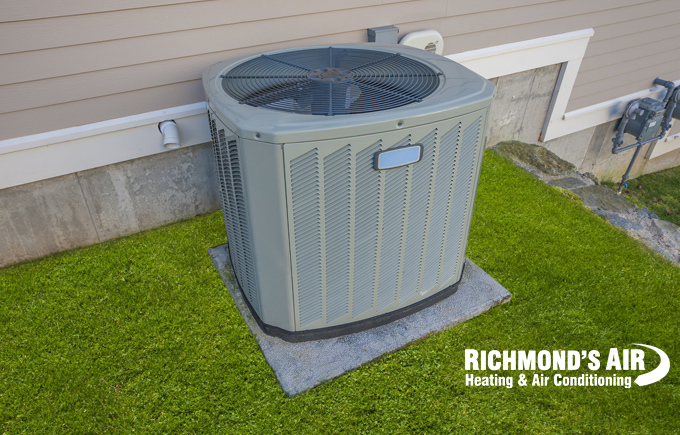Learn about the factors that impact the lifespan of your home’s cooling system
In the infamous Texas heat and humidity, having an efficient, working air conditioning unit is a necessity. That’s why it is important to make sure your home air conditioning system stays up and running throughout the hot summer months.
But how long do AC units usually last in Texas?
While your AC won’t last forever, it can work for a long time depending on many factors. Here are some key factors that may impact the lifespan of your HVAC unit so that it helps you and your family stay cool for many summers to come.
How long does an air conditioner last?
On average, the lifespan of a well-maintained, central air conditioning system is around 15 to 25 years, whereas windows AC units typically last a decade. However, this depends on a number of factors, such as the following:
- The type and size of the system
- Proper installation and storage
- Frequency of use
- The climate it works in (hot and humid climates kill AC systems faster)
- The age of the unit
Let’s explore each of these factors more in-depth.
The type and size of the system
When thinking about the lifespan of an HVAC system, it’s important to remember that not every system is built the same. Although most systems include the same basic parts needed to run, some may be more durable or contain parts of higher quality than others and each part will have its own lifespan.
You might think that a larger air conditioner will last longer and work better, but if the unit is too large for an area, it will not remove humidity adequately. On the other hand, units that are too small will have to work harder to attain a comfortable temperature on hotter days. Therefore, proper sizing is key—not only when considering how well an AC unit will perform but for how long it will continue to run.
Proper installation
Why pay for someone to come out and install your AC unit when you can do it yourself?
Because having a professional come out and install your system ensures it is getting done right. Should you require any further assistance in the future, you can always call them back.
While many DIY projects are great to do on your own and can save you lots of money, installing an air conditioner can cost you more in the long run if not done correctly. It can also be a safety hazard if you make mistakes during the process, not to mention it can reduce the service life of your unit.
The installation process requires measurements for the right sizing of the unit and the room, electrical work, correct insulation and duct installation. Proper installation allows an AC unit to perform at its peak and prolongs its lifespan.
Frequency of use
Some people leave their air conditioning on when they are not at home so that when they return it will be nice and cool. However, an efficient AC unit can cool a home quickly when turned on. Running an AC unit constantly reduces pressure in the evaporator coil and can cause the unit to freeze over.
Not only will this reduce the lifespan of the unit, but it can cause potential danger since frozen coils can damage the compressor by causing liquid refrigerant to flow back to it. The less often an AC unit is used, the longer it will continue to perform.
The climate it works in
If a windows AC unit is installed out of direct sunlight, it can prolong its life expectancy greatly. Installing the unit in a shaded area, usually a north wall, is ideal since the unit will not have to withstand hours of being heated by the sun. On hotter days, the unit will have to work harder to maintain the desired temperature; and the harder it works, the more life will be taken out of it.
As for central air conditioning units, they will have to work much harder and longer in a hot and humid climate, as we have here in Houston. As a result, the overall lifespan of the system may be less than in cooler climates where the air conditioning isn’t used for part or most of the year.
The age of the unit and AC maintenance/repairs
As an AC unit ages, its lifespan is reduced. Older systems will have to work harder to continue operating efficiently, especially if they are neglected. If you fail to maintain your AC system properly and schedule regular maintenance, it will no longer cool your home as expected. The main factor in determining how long an AC unit will last is how well it is maintained.
Sooner or later, you will have to either replace parts or even the entire system. Units that are properly maintained will work much longer than neglected systems and will save you money as well.
Failure to tune-up or maintain your unit can result in it failing prematurely. Therefore, it is important to have it serviced at least once or twice a year by a professional who will perform a complete full-point inspection of your unit that includes:
- Checking for performing delta-t drop
- Checking efficiency
- Checking humidity removal
- Cleaning your system including the heating coils
- Changing filters
When to contact a Houston AC specialist
Over the course of time, a lot can go wrong with an AC unit, such as an overflowing condensate drain line, leaking refrigerant, failed compressor, clogged air ducts, etc. In addition, you should contact a repairman immediately to prevent any further damage if any of the following should occur:
- Weak airflow
- Unusual sounds
- Excessive moisture or leakage
- AC not blowing cold air
- Foul odors
- Malfunctioning thermostat
- Low refrigerant levels
- Increase in utility bill
 Read reviews
Read reviews









